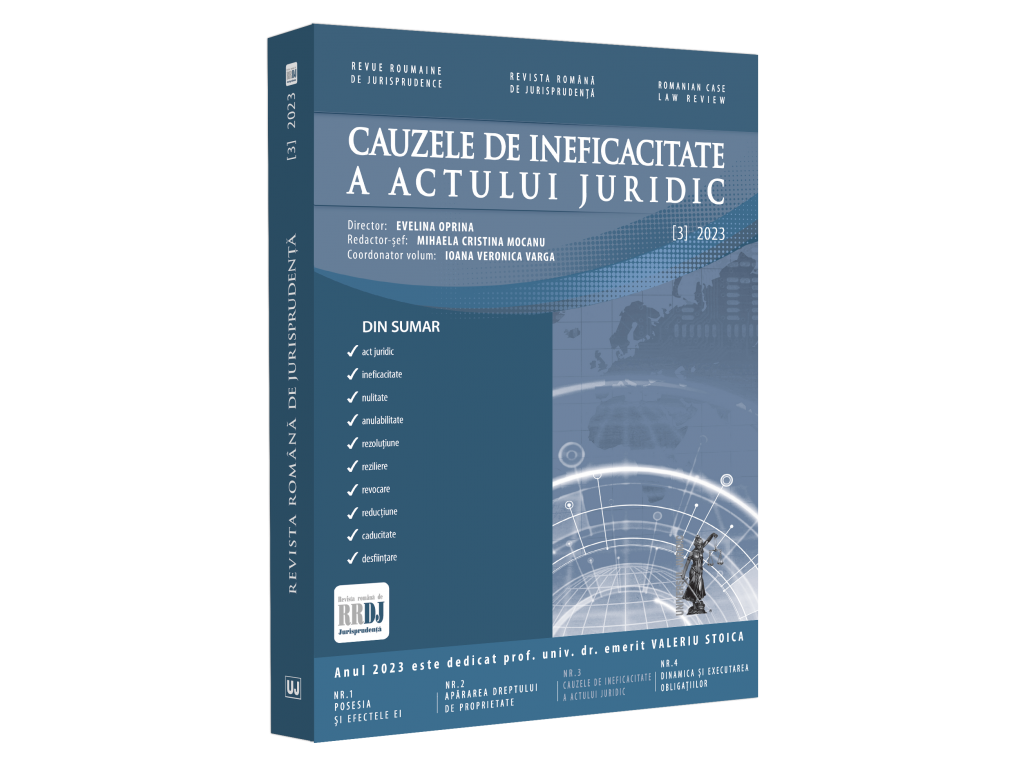Nullity of contract – an ever present cause of ineffectiveness. Absolute nullity and relative nullity in Romanian and French case law
DEZBATERI
Abstract
The article is an overview, from a theoretical and practical perspective, of an extremely broad and generous topic, the nullity of contract, starting from the foggy, rigid and incomplete historical past, going through the classical and modern theories of nullity, the insufficient regulations of the Civil Code of 1864, but also the more elaborate ones of the New Civil Code of 2009, seen in comparison with the current legal provisions of the French Civil Code, from which the Romanian legislator was deeply inspired. The cases of absolute nullity and relative nullity and their legal regime are presented in a comparative law study, as well as an evolution over time of the notion of public policy and good morals, inspired by a work of French doctrinaires, and what is of most interest to practitioners is the extensive and relatively recent case law, which abounds in the second part of the article.
The paper tries to capture those causes of absolute and relative nullity that we find invoked most often in practice, but also the pitfalls to which judges are exposed when the parties present and invoke a multitude of causes of absolute and relative nullity, sometimes combined with other causes of ineffectiveness, in order to obtain the invalidation of the contract challenged. It is thus up to the judge to be vigilant and to qualify the will of the parties, correctly identifying the ground of nullity invoked and its legal regime, without exceeding the limits of his powers. In this endeavour, for the Romanian legal professional, looking at French legislation and jurisprudence is always a help for a better understanding and deepening of the institution of nullity, so similarly regulated, but in a more advanced and subtle system of law.
Keywords: nullity of contract, absolute and relative nullity, legal ineffectiveness, Romanian and French jurisprudence








